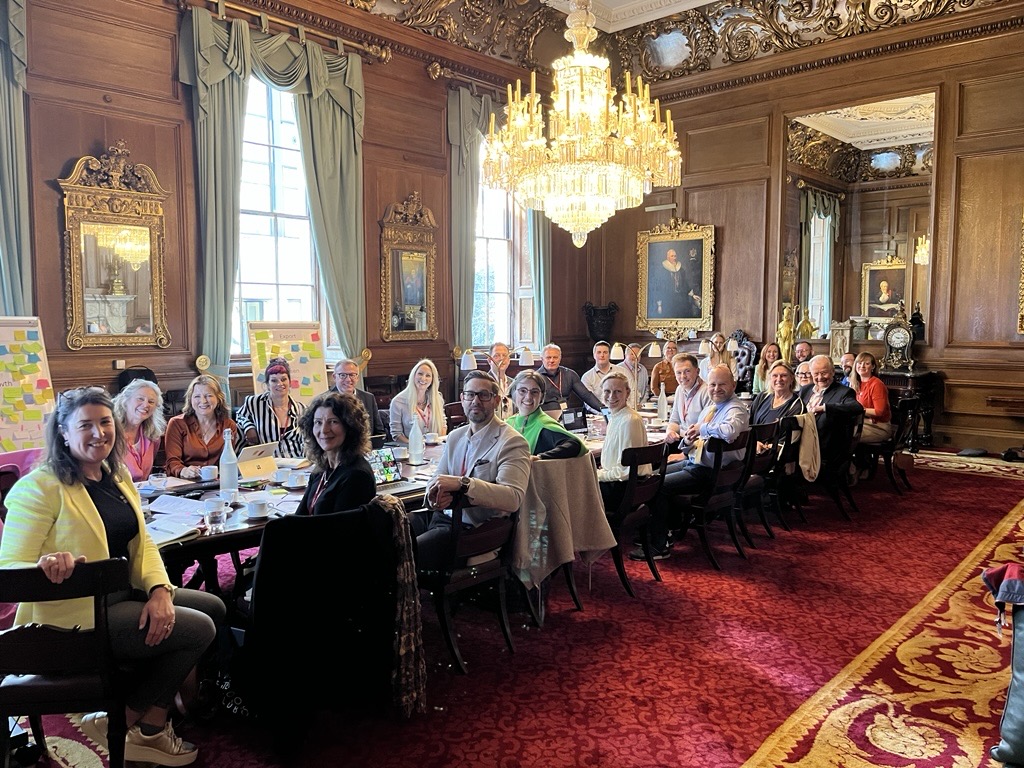Founder of The Jewels Club, Andrew creates platforms that connect the world of jewellery through community, content and access.
The UK jewellery sector has presented a rare show of unity. In response to the Government’s ongoing Small Business Inquiry, the UK Jewellery, Silverware and Allied Crafts (UKJSAC) Roundtable Group has submitted a coordinated, industry-wide case for urgent reform — one that puts the needs of microbusinesses, creatives and makers firmly on the political agenda.
The submission, developed collaboratively by leading trade bodies and institutions, outlines how systemic challenges — spanning finance, exports, skills and the High Street — are affecting the long-term viability of jewellery and allied craft businesses across the country.
The UKJSAC Roundtable Group represents a cross-section of the industry, from heritage organisations and training institutions to trade associations and independent retailers. Contributors include the National Association of Jewellers, The Goldsmiths’ Company, Birmingham City School of Jewellery, British Watch & Clock Makers, Houlden, Gem-A and others.
Together, they have presented a sector-wide view of the barriers small businesses face in 2025 — and the types of targeted policies needed to remove them.

Members of the UK Jewellery, Silverware and Allied Crafts Roundtable Group meet at Goldsmiths’ Hall to shape a unified sector response to the Government’s Small Business Inquiry. Imagery: Courtesy of UKJSAC / NAJ
A broken business rates system
The current model penalises small, creative and workshop-based firms, many of which operate in high-footfall areas with limited margins.
Limited access to finance
Microbusinesses in the creative economy are frequently labelled high risk, despite strong track records and growth potential.
Export challenges
Smaller firms face disproportionate burdens when navigating customs, logistics and bureaucracy—especially in high-value, low-volume sectors.
Cumulative operating costs
A combination of tax pressures, administrative burdens and the removal of tax-free shopping for tourists is making it harder to stay profitable.
Leadership and succession gaps
Many founder-led businesses lack the support needed to scale or transition, with few structured pathways for leadership training.
Structural disadvantages
Barriers persist for women, neurodiverse entrepreneurs and underrepresented groups looking to enter the trade.
The UKJSAC’s submission goes beyond diagnosis. It presents a range of specific, practical proposals, including:
A reformed business rates model tailored to small, craft-led enterprises
Improved access to microfinance and bespoke funding options
Incentives for High Street revival, including parking, shopfront grants and safety initiatives
Simplified export support and greater representation in trade missions
Investment in leadership development and business succession planning
Support schemes for parental leave and entrepreneurship in self-employment
Stronger recognition of the sector’s contribution in national economic policy
Ben Massey, Chief Executive of the National Association of Jewellers and Secretariat for the UKJSAC, commented:
“Recognition that the industry is made up, in the main, of small and microbusinesses is too often overlooked. Yet the challenges we’ve outlined aren’t isolated to jewellers or silversmiths – they affect every small business operating in this ecosystem, from designer-makers and repairers to retailers and exporters.”
Ben Massey - National Association of Jewellers CEO
He added that the joint response was developed alongside other creative sectors, including fashion, footwear and textiles, forming a broader call for smarter, more inclusive policy.

Ben Massey NAJ CEO
Beyond economic reform, the UKJSAC is urging the Government to invest in long-term sector sustainability. Proposals include expanding creative education, increasing part-time learning access, and funding regional centres of manufacturing excellence.
As the UK rethinks its approach to small business strategy, the jewellery and allied crafts sector is asking for a seat at the table. Not as an afterthought, but as a vital contributor to Britain’s creative economy.
This submission is more than policy — it’s a reflection of how connected and self-aware the UK jewellery sector has become. The issues raised aren’t new, but the way they’re being addressed — collaboratively, across organisations, disciplines and scales — marks a shift.
"For too long, small businesses in jewellery have operated on the periphery of political visibility. This moment brings them into the conversation not just as heritage keepers or skilled makers, but as active contributors to the economy and cultural life."
Andrew Martyniuk -
The Jewels Club
What comes next depends on how seriously Government listens. But if cohesion counts for anything, this time, they should.

Andrew Martyniuk - Founder of The Jewels Club

A Pact Signed in Power — and Sealed in Gold
India–UK FTA signed by Modi and Starmer unlocks $2.5bn trade vision for Indian jewellery exports
READ MORE
Tariff Shock – What Trump’s 50% Duties Mean for India’s Gold, Jewellery & Diamond Trade
India’s jewellery and diamond industries face unprecedented pressure as US tariffs jump to 50%, prompting official backlash and rapid readjustments in trade strategies.
READ MORE